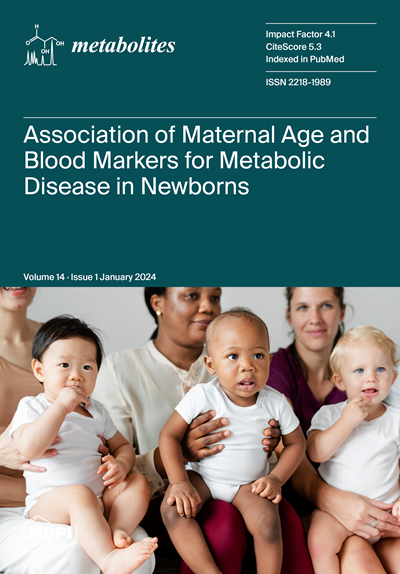Impact of Microplastic Exposure on Blood Glucose Levels and Gut Microbiota: Differential Effects under Normal or High-Fat Diet Conditions
IF 3.4
3区 生物学
Q2 BIOCHEMISTRY & MOLECULAR BIOLOGY
引用次数: 0
Abstract
Microplastics are emerging pollutants that have garnered significant attention, with evidence suggesting their association with the pathogenesis of type 2 diabetes mellitus. In order to assess the impact of polystyrene microplastic exposure on alterations in the gut microbiota and the subsequent implications for glucose dysregulation under different dietary conditions in mice, we investigated the effects and disparities in the blood glucose levels induced by polystyrene microplastic exposure in mice fed a high-fat diet versus those fed a normal diet. Using 16S rRNA sequencing and bioinformatics analyses, we explored the dynamic changes and discrepancies in the gut microbiota stability induced by polystyrene microplastic exposure under varied dietary conditions, and we screened for gut genera associated with the potential of polystyrene microplastics to disrupt glucose homeostasis. Our findings indicate that a high-fat diet resulted in abnormal mouse body weight, energy intake, blood glucose levels and related metabolic parameters. Additionally, polystyrene microplastic exposure exacerbated the glucose metabolism disorders induced by a high-fat diet. Furthermore, the composition and diversity of the mouse gut microbiota were significantly altered following microplastic exposure, with 11 gut genera exhibiting a differential presence between mice fed a high-fat diet combined with microplastic exposure compared to those fed a normal diet with microplastic exposure. Moreover, Ucg-009 played an intermediary role in the association between a high-fat diet and the fasting blood glucose. Hence, our study demonstrates that polystyrene microplastic exposure exacerbates high-fat diet-induced glucose metabolism disorders, whereas its impact on the blood glucose under normal dietary conditions is not significant, highlighting the differential influence attributable to distinct alterations in characteristic gut genera.微塑料暴露对血糖水平和肠道微生物群的影响:正常或高脂饮食条件下的差异效应
微塑料是一种新出现的污染物,引起了人们的极大关注,有证据表明微塑料与 2 型糖尿病的发病机制有关。为了评估聚苯乙烯微塑料暴露对肠道微生物区系改变的影响,以及随后在不同饮食条件下对小鼠血糖失调的影响,我们研究了聚苯乙烯微塑料暴露对高脂饮食与正常饮食小鼠血糖水平的影响和差异。利用 16S rRNA 测序和生物信息学分析,我们探讨了在不同饮食条件下,聚苯乙烯微塑料暴露所诱发的肠道微生物群稳定性的动态变化和差异,并筛选出与聚苯乙烯微塑料可能破坏葡萄糖稳态有关的肠道菌属。我们的研究结果表明,高脂肪饮食会导致小鼠体重、能量摄入、血糖水平和相关代谢参数异常。此外,暴露于聚苯乙烯微塑料会加剧高脂饮食引起的葡萄糖代谢紊乱。此外,小鼠肠道微生物群的组成和多样性在接触微塑料后发生了显著变化,与喂食正常饮食并接触微塑料的小鼠相比,喂食高脂饮食并接触微塑料的小鼠肠道微生物群中有 11 个微生物属的存在有差异。此外,Ucg-009 在高脂饮食与空腹血糖之间的关联中起着中介作用。因此,我们的研究表明,暴露于聚苯乙烯微塑料会加剧高脂饮食引起的葡萄糖代谢紊乱,而在正常饮食条件下,其对血糖的影响并不显著,这凸显了可归因于肠道特征种属的不同改变的不同影响。
本文章由计算机程序翻译,如有差异,请以英文原文为准。
求助全文
约1分钟内获得全文
求助全文
来源期刊

Metabolites
Biochemistry, Genetics and Molecular Biology-Molecular Biology
CiteScore
5.70
自引率
7.30%
发文量
1070
审稿时长
17.17 days
期刊介绍:
Metabolites (ISSN 2218-1989) is an international, peer-reviewed open access journal of metabolism and metabolomics. Metabolites publishes original research articles and review articles in all molecular aspects of metabolism relevant to the fields of metabolomics, metabolic biochemistry, computational and systems biology, biotechnology and medicine, with a particular focus on the biological roles of metabolites and small molecule biomarkers. Metabolites encourages scientists to publish their experimental and theoretical results in as much detail as possible. Therefore, there is no restriction on article length. Sufficient experimental details must be provided to enable the results to be accurately reproduced. Electronic material representing additional figures, materials and methods explanation, or supporting results and evidence can be submitted with the main manuscript as supplementary material.
 求助内容:
求助内容: 应助结果提醒方式:
应助结果提醒方式:


